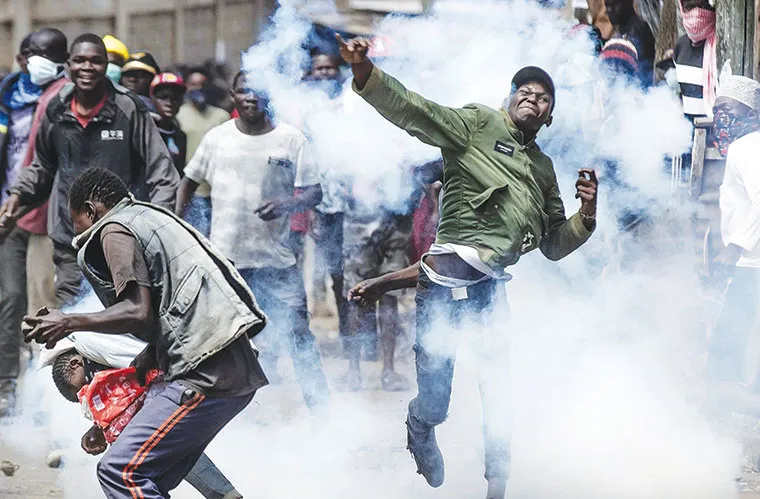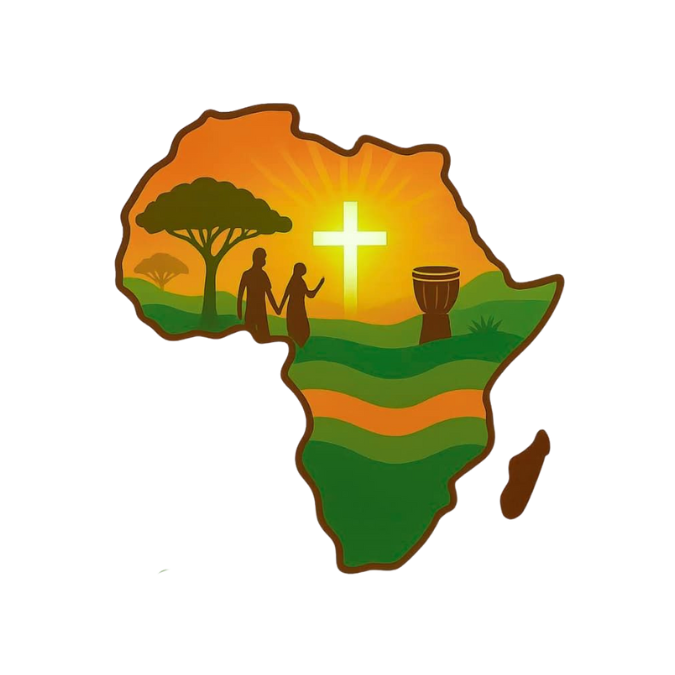
On October 3, 2025, Madagascar’s President Andry Rajoelina took to Facebook Live with an extraordinary claim. After a week of protests led mostly by Gen Z activists filling the streets of Antananarivo and other cities, Rajoelina dismissed the movement as a coup attempt orchestrated by shadowy forces. He accused “a fringe of the opposition” and unnamed “foreign agencies” of paying young people to rise up—not to seek justice or reform but to overthrow him. He even suggested that “cyberattacks” and “robots” were being deployed to manipulate Malagasy youth into rebellion. The president offered no evidence.
What he did offer was an image of leadership that sees young people not as citizens but as pawns, incapable of thinking for themselves. The reaction was swift. “He infantilizes us,” one protester told RFI. “His speech shows that he takes young people for idiots, manipulated by dark forces, as if we cannot think for ourselves.” Another pointed to the deeper cultural wound: “There is a generational divide in Madagascar—the elders always believe they know better than the youth.” Within hours, social media filled with memes mocking Rajoelina’s “robots” theory—proof once more that Africa’s youth know how to turn even repression into irony and resistance. Or to borrow the sub-title of my latest book, Africans know how to smile while suffering.
This moment in Madagascar is not simply a local protest. It is a mirror held up to Africa on the failures of leadership to live up to the hopes and dreams of the founding fathers and mothers of modern Africa. We are failing our young people and betraying the continent through misrule, corruption, repression, and the refusal to build inclusive states where every African can thrive. Across Africa, the youth are rising—restless, creative, angry, hopeful, and impatient with elites who cling to power. And across the continent, rulers respond with the same tired playbook: deny, dismiss, repress, and blame outsiders. Madagascar today belongs in the same sentence with Morocco, Nigeria, Kenya, Sudan, and Tunisia.
In Morocco, youth discontent has boiled over in protests against unemployment, corruption, and inequality. As in Madagascar, leaders dismiss the young as naïve or manipulated, and respond with heavy policing rather than dialogue. But the roots of discontent are clear: a generation locked out of the future, denied participation in public life, and stripped of the dignity of work. The uprisings in Morocco echo those of Tunisia, where in December 2010 Mohamed Bouazizi, a 26-year-old street vendor humiliated by police, set himself on fire. His desperate act ignited the Arab Spring, toppling dictators, reshaping political landscapes, and showing that the despair and determination of a single young person could spark revolution. Tunisia today struggles to hold on to its democratic experiment, with many promises unfulfilled, but the Arab Spring remains a testimony to the power of youth anger and aspiration to redraw political maps. One might also draw a parallel with the recent youth uprising in Nepal, which successfully toppled a corrupt, insensitive, and oppressive government.
Sub-Saharan Africa has witnessed parallel movements. In Kenya, youth have become the central force in repeated mobilizations against economic injustice, corruption, and electoral manipulation. The 2023 cost-of-living protests revealed a generation capable of using digital platforms not just for entertainment but for coordination, documentation, and amplification of dissent. Kenyan youth no longer wait for permission from political parties or religious leaders; they are scripting their own participation in national life.
In Nigeria, the 2020 #EndSARS movement against police brutality became one of the clearest signs of Africa’s youth awakening. Young Nigerians occupied streets, organized mutual aid, and used hashtags to unite a generation against state violence. The government responded with force, culminating in the Lekki Toll Gate massacre. Yet the legacy of #EndSARS has not died. It deepened solidarity and political consciousness among Nigerian youth, who increasingly see themselves not as passive subjects but as active shapers of the nation’s destiny.
Sudan offers the most sobering case. In 2019, youth-led protests toppled Omar al-Bashir after thirty years of dictatorship. For a moment, Sudanese youth stood as global icons of courage and liberation. Yet the euphoria was betrayed when the military hijacked the revolution, plunging the country into renewed repression and civil war. The tragedy of Sudan is not the weakness of its youth but the intransigence of elites who could not imagine sharing power. And yet even amid devastation, the youth networks that organized the revolution remain alive underground, sustaining solidarity, mutual care, and alternative visions of governance. Sudanese youth remind us that an uprising is not only about removing tyrants but about cultivating citizenship, communal resilience, and political imagination.
Taken together, these examples show both continuity and novelty in Africa’s youth uprisings. Leaders have long underestimated the intelligence, resilience, and determination of their young citizens. The dismissals are always the same: the youth are immature, manipulated, a threat to stability. But digital media has given today’s generation unprecedented tools of mobilization and connection. As the late Ghanaian economist George Ayittey once observed, Africa’s “cheetah generation” has the potential to lead Africa into a new future by breaking the cycle of decay that has held the continent down for ages. A tweet in Lagos resonates in Nairobi; a meme in Antananarivo spreads across francophone Africa; videos from Khartoum circulate to Casablanca and beyond. African young people are teaching one another, learning from one another’s struggles, and weaving an intercontinental narrative of resistance that will soon cascade with transformative effect.
At the heart of this generational conflict is not only poverty or unemployment, though these are crushing realities. Nor is it only foreign interference, though global powers often transplant their geopolitical battles onto African soil, treating African leaders as pawns while hollowing out the continent’s resources. The deeper issue is the refusal of Africa’s ruling elites to listen. Leaders infantilize youth, imagining that repression will secure stability. Yet history proves the opposite: repression radicalizes, silence breeds rage, and violence sows the seeds of future revolt.
Here Augustine of Hippo speaks with uncanny relevance. Writing in the turmoil of the late Roman Empire, Augustine argued that societies are defined by their loves: amor sui usque ad contemptum Dei—love of self to the point of contempt for God—creates the earthly city of domination, while amor Dei usque ad contemptum sui—love of God to the point of self-forgetfulness—creates the city of justice. Africa’s politics today is marked by the first. Leaders cling to power for self-interest, practicing what Jean-François Bayart called la politique du ventre—the politics of the stomach—protecting themselves from accountability while the people suffer. Yet in the rising voices of African youth, we glimpse the second: a longing for justice, dignity, Ubuntu, and solidarity. History, for Augustine, is not static. It is shaped by the loves and choices of people. Cultures change because hearts change, and political futures are redrawn when loves are reoriented away from ego toward the common good.
Africa’s youth uprisings are not merely political disruptions. They are signs of a deeper hunger for reorientation: a generation searching for meaning, dignity, and a future worth inhabiting. Malagasy youth mocked Rajoelina’s talk of “robots” because they know too well that what drives them to the streets is not cyber manipulation but lived reality—the frustration of poverty forcing many into perilous exile across the Sahara and Mediterranean, the sting of exclusion, the humiliation of being treated as children in their own homeland. Nigerian youth under the #EndSARS banner were not manipulated; they were responding to years of extortion and brutality. Sudanese youth were not pawns; they were reclaiming a stolen future. Tunisian youth in 2011 were not foreign agents; they were demanding bread, dignity, and freedom.
To continue to dismiss Africa’s youth as incapable of serious political thought is to refuse reality. To repress their movements is to declare war on the future. What Africa needs is a new imagination of politics—one that recognizes youth not as leaders of tomorrow but as leaders of today, or as Pope Francis insists, the “Church of Now.” They are already shaping discourse, mobilizing communities, and redefining citizenship. They are the conscience of the continent.
The Church and educational institutions cannot remain neutral. Too often they have sided with power or retreated into silence. Yet Augustine reminds us that history is a web of signs to be read with wisdom and love. To read the signs of the times today is to recognize Africa’s restless youth not as a threat to be repressed but as a gift to be received. Their demands for accountability and justice echo God’s justice inscribed in human hearts. Faith that demonizes protest malfunctions, just as cultures without faith collapse into cynicism. By the same token to live a life of acquiescence and resignation to the current toxic politics in many African countries and the unbroken cycle of social ennui of a client state and state capture in the face of Africa’s faltering democracy as if it was an act of God is to fail in our prophetic commitment as Church.
The question that now confronts Africa is whether its leaders will learn to listen before it is too late. If they continue to repress, they will fuel the instability they fear. If they continue to infantilize, they will deepen rage and accelerate the crisis with devastating collapse of African societies. It is time for African leaders to rethink their transactional and extractive leadership. They must choose dialogue over denial, humility over hubris, partnership over repression and usher in a generational paradigm shift that is badly needed to change the trajectory of history in our beloved continent.
Africa stands at a crossroads. Elections loom in Côte d’Ivoire, Cameroon, and Uganda, with the same old men clinging to power as though it were their birthright. Men who have run out of ideas and now stand as obstacles to Africa’s future. From Antananarivo to Lagos, from Nairobi to Khartoum, from Rabat to Tunis, Africa’s youth are saying with one voice that they will no longer be silenced. The question that remains is whether the Church and civil society will accompany Africa’s restive and ambitious young people so that they can now move from protest to political activism capable of replacing a failed political class and liberating Africa’s future.




3 comments
Yes Professor Stan Chu Ilo. I firmly and highly agree with you that “Culture change because hearts change” Excellent expresdion of progressive thoughts.
African leaders’ egocentrism blinds them to realities beyond their power, drunkenness, and kleptomania. These are walls that prevent them from seeing that the world is tilting toward young people. In a global culture defined by a technological race, our oligarchs, who cling to power, have failed to accept the painful truth: their backs are too weak to bear the burden of the next generation, their feet too feeble to navigate the intricate landscape of contemporary global politics, and their hands too powerless to rewrite Africa’s checkered and unfortunate history. Moreover, their outdated mindsets prevent them from harnessing the transformative winds of digital culture that are reshaping global politics and development.
What we witness is an Africa trapped in the shadow of stagnant leadership—pushed forward by its vibrant youth but held back by the ego, wickedness, and corruption of predominantly oligarchic leaders. It is time for African youth to take their destiny into their own hands. Demanding change, accountability, and transparency is no longer optional—it is a sacred duty.
Thanks for this insightful commentary.
Merci prof. Fr Stan pour cette belle analyse. C’est dommage ce qui se passe sur le continent Africain actuellement et surtout le mutisme ainsi que la sourde oreille, la négligence des aspirations du peuple en particulier de la jeunesse. C’est négligence va certainement amplifier l’instabilité de nos nations parce que, dans la revendication active des jeunes, la répression conduira à une violence certaine et continue si rien n’est fait. Vive l’Afrique et les aspirations légitime des jeunes Africains. Au Burkina Faso, malgré les agitations, nous espérons que la stabilité sera pour bientot.